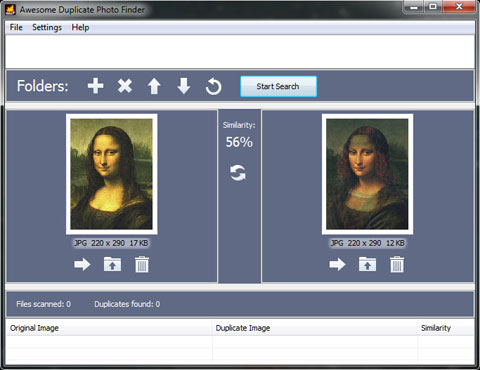October 10, 2010
www.winikerlaw.com
A mixed topic, but the common theme in this article is digitized images - pictures that (usually) have been taken by a phone or other device, or (as in the old days) scanned in after a roll of film had been taken by horseless carriage to the corner store to be developed. I learned, while with the Department of Justice*, is that each digital image contains metadata, and other data that makes them unique.
You can alter a picture on Photoshop - but a true copy of a picture will have all the same ones and zeros as the original. This means there is a way you can make sure the digital picture you have is a complete duplicate of another picture. (The explanation is way oversimplified - primarily for me - but there's a concept called Hash Function involved too)
All that means a couple of things at home and on the internet. If you are like me, you take dozens of pictures of the kids and family every weekend, download them to the computer every few months - but not deleting old pictures you already downloaded. You end up with hundreds or thousands of duplicates.
Two programs that search your computer's images for exact, or comparable metadata that work great are:
It has an easy interface - select the folder you want to search (My Pictures) and it scans the computer for duplicates.
For me, it helped me find other folders with a lot of duplicates - using the program to actually delete them was time consuming.
The interface appears more intimidating - but it does the same thing - and pulls up files in a way that you can delete a batch at a time. I have not played around with it enough though to trust it entirely yet - just used it to identify duplicate folders at this point.
There are search engines that purport to index the same information from the internet to find the same information, such as Tin Eye - but have not seen a dramatic application or functionality.
A search on Tin Eye using the DOJ logo from CCIPS (Computer Crime and Intellectual Property Section, USDOJ), where you inset the link of the logo (picture) - told me the logo has been copied onto a number of websites, including UK based pornography enthusiasts, and more benignly, a USA Today blog.
A screenshot of the search:
Facial recognition software made available in Google image searches caused a real dust-up a few years ago. Companies that offered it took it off the market. Google apparently used it in their image search functions, but my research shows they dropped it circa 2007.
They have now released an interesting new product - Google Goggles - an app for a Droid or iphone that allows you to photograph a building, monument, etc, and run an internet search to pull information about that image. It is essentially image recognition to identify the object (Big Ben, Eiffel Tower - but does it have the Penguin?)
When first released over a year ago, the question of facial recognition created a furor. According to the Daily Mail, Google says:
Google spokesman Anthony House said: 'We do have the relevant facial recognition technology at our disposal. For instance with our Picasa picture service a user can tag a friend in their photo album and it will search for and tag any other pictures of that person. 'But we haven't implemented this on Google Goggles because we want to consider the privacy implications and how this feature might be added responsibly. 'So if someone uploads a picture of a stranger on Goggles there is no process to identify them and the search will come up with "no matches found."
'We will have talks with privacy advocates and consumers before we consider any changes - it may be people want such a service, but we don't have a rigid timescale on when any decisions will be made.'
While facial recognition is mostly out of the hands of the general public, it's a tool that exists for some right now - and may bring very interesting uses for business and government. Imagine surveillance cameras identifying faces, then running automatic internet searches - cross referencing shopping or web surfing history - and producing an individual ad right there in the shopping aisle for a product it thinks you want - or sending a note to the mall cops to pick you up on an outstanding warrant? Some people may start wearing sunglasses more when they go shopping.
*[I was a line Asst. US Attorney in Spokane and Yakima, Washington- and worked with "Main Justice's" CEOS -Child Exploitation Section and CCIPS -Computer Crime Section in national investigations as well as conducted and organized classroom training]
For any questions regarding a law enforcement investigation, grand jury subpoena, federal indictment, cyber bully or cyber stalking law, computer crimes, white collar criminal (fraud) charges, or any Mecklenburg County state charges, contact the
Winiker Law Firm at
(704) 750-9212 or info@winikerlaw.com



